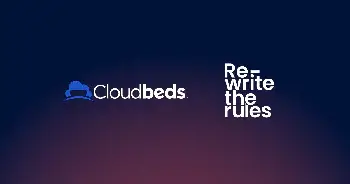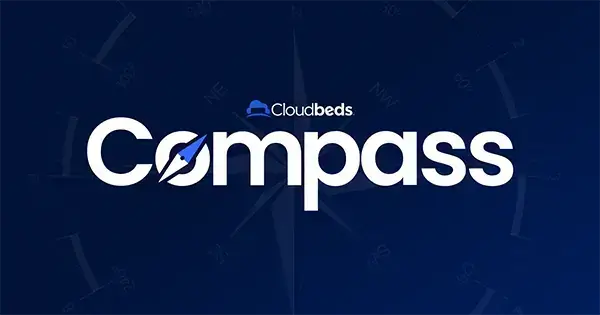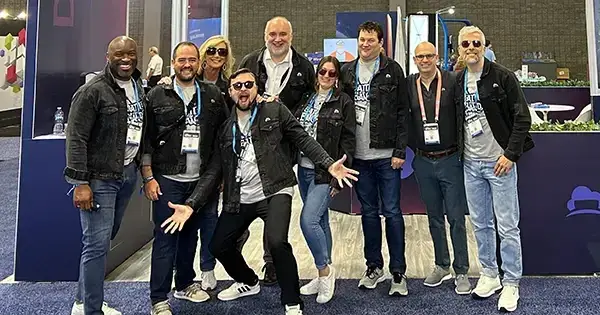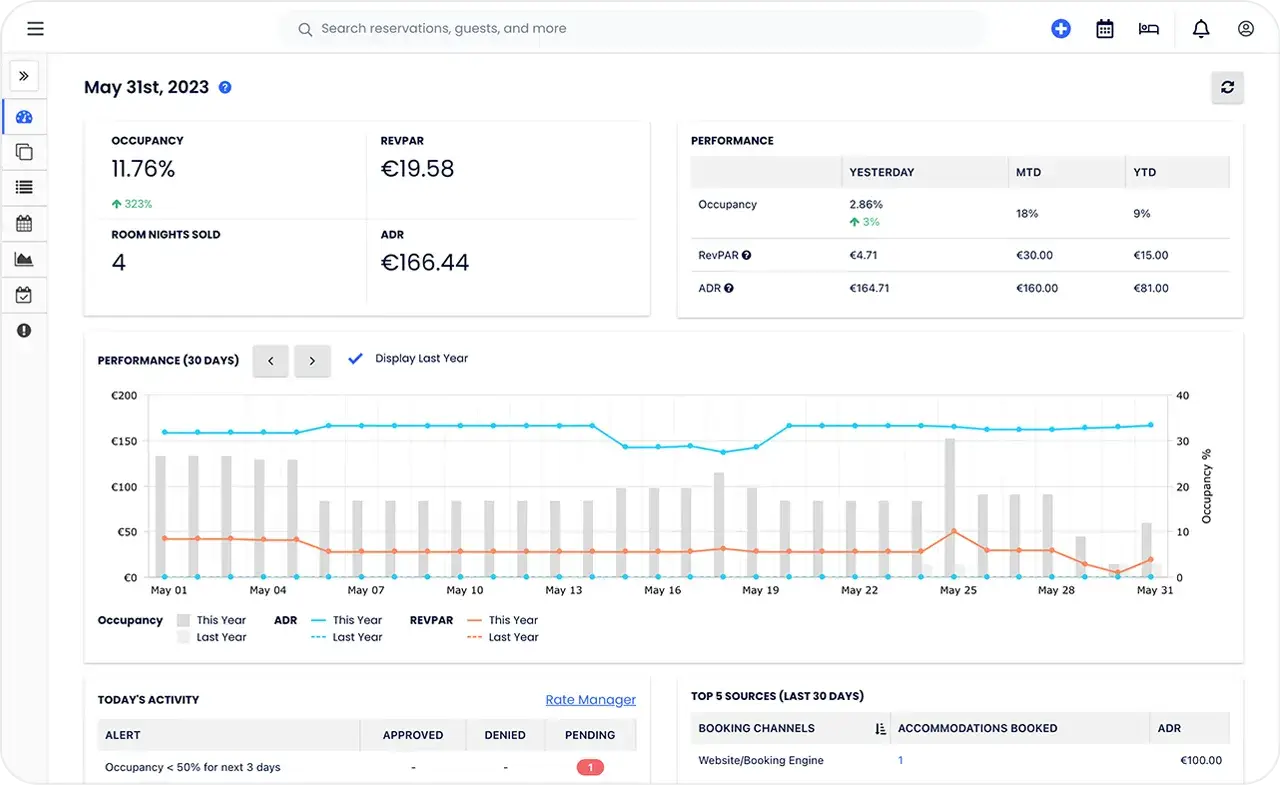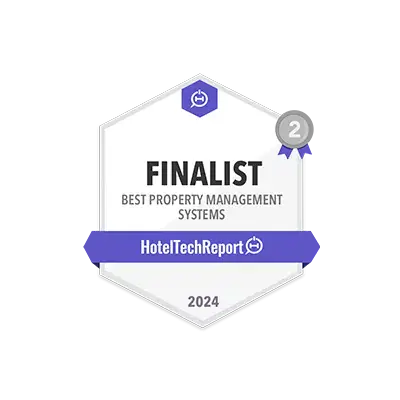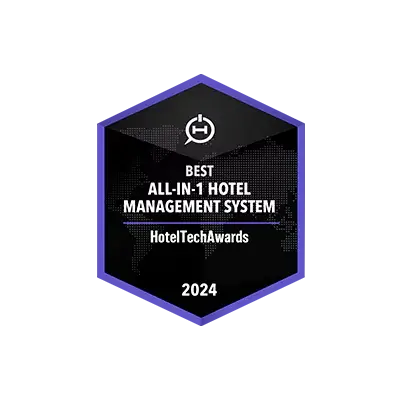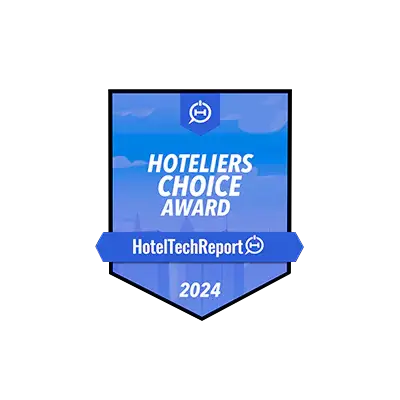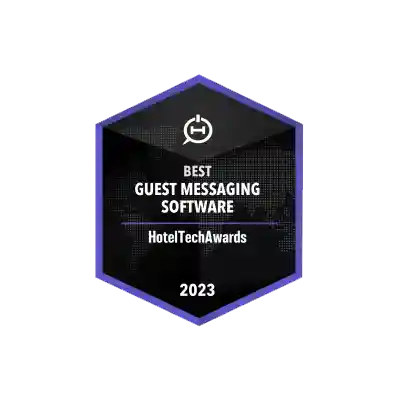
By Cloudbeds
With inflation driving up costs, travelers are more price-sensitive than usual. To ensure they’re getting the best value for their money, trip planners are comparing hotel room rates on major OTAs and metasearch platforms before booking. Lodging operators would be wise to do the same.
For the hotel business, rate shopping is an integral part of a dynamic pricing strategy, providing valuable insights into competitor rates. By monitoring market pricing intelligence, hotels can stay apprised of opportunities to flex pricing power, increase ADR (average daily rate), and lower pricing to increase occupancy. Rate shopping helps answer the eternal question in hotel revenue management, “How much should we charge for our rooms?”
Here we explain what rate shopping in the hospitality industry is, what the benefits are to owners and operators of independent lodging businesses, and what features to look for when evaluating rate shopping software.
What is hotel rate shopping?
Rate shopping is the practice of hotels monitoring competitors’ room rates and comparing them to their own rates. It can be used as a short-term tactic, such as a spot-check to see what competitors are charging on an upcoming weekend, to manage rate parity, or as part of a long-term revenue management strategy, with frequent rate checks to identify patterns in competitor pricing and determine how best to position one’s own rates.
The ultimate objective of rate shopping is to achieve maximum revenue and profitability for the property by growing the average daily rate (ADR) and occupancy and capturing the optimal business mix. With rate insights, lodging operators can price right every time to drive more third-party and direct bookings.
In the past, hotels checked out competitor rates by performing a daily call-around. Today, it’s much easier to visit an online travel agency (OTA) to compare pricing and track it on a spreadsheet. However, this method is time-consuming and doesn’t capture the detailed pricing data hotels need to make informed decisions.
Moreover, hotel rates change frequently, and the information collected can quickly lose relevance. For these reasons, more hospitality businesses are investing in a rate intelligence tool to automate the price comparison process and integrate it with other revenue management functions.
What is a hotel rate shopper?
A hotel rate shopping tool is a software application used by hoteliers to automate the collection and monitoring of competitor rates and availability. Rate data, sometimes referred to as market data or hotel pricing intelligence, is scraped from selected distribution channels and displayed on an interactive dashboard. This allows hoteliers to easily compare rates and availability across competitors and ensure they’re always positioned where they want to be.
A rate shopper may be standalone software, but more often, it is integrated into a revenue management system, allowing hotels to perform additional tasks from the same dashboard, like managing pricing and setting inventory controls.
6 benefits of a rate shopper
A rate shopping tool offers lodging operators several advantages, including:
- Automate the rate shopping process, freeing up revenue managers from having to maintain manual spreadsheets and allowing them more time to focus on data analysis and pricing strategy.
- Make strategic, dynamic pricing decisions rather than keeping static, seasonal rates or pricing rooms based on intuition or last year’s rates.
- View real-time rate data consolidated on a single dashboard, ensuring that pricing decisions are based on current conditions.
- Benchmark rates against competitors for specific periods, such as an upcoming conference or local event, to identify patterns in market pricing behavior and position strategically.
- Receive advance warnings of future periods of unusually high or low market demand and identify opportunities to increase or decrease rates and tighten or loosen booking conditions.
- Never miss a revenue opportunity. Dynamic pricing is especially important for hotels, given that room inventory is perishable. When a room goes unsold on a given night, that sales opportunity is lost forever!
Cloudbeds’ Pricing Intelligence Engine (PIE) offers a comprehensive dashboard for lodging operators to track performance and make informed pricing decisions.
Key features to look for in a rate shopper
Rate shopping tools range from very basic to very complex. It’s important to vet the options carefully to ensure you find a solution that offers all the features you need but doesn’t require you to pay for various bells and whistles you won’t use and probably don’t need.
For independent properties, here are some of the capabilities to prioritize.
- Real-time data. Frequent syncing of rate shopping information from chosen distribution channels (ie. GDS and OTAs) is vital to make informed pricing decisions based on current market conditions, not last week’s data.
- Ease of use. The rate shopper should be straightforward to configure, simple to learn, and easy to operate. If staff find the software difficult or confusing, they may avoid using it, missing out on revenue opportunities.
- Flexibility. Look for the flexibility to select customized compsets, choose your preferred distribution channels to track, and select a calendar view that displays long-term trends and activities on specific days of the week.
- Revenue management features. Ask about additional revenue management capabilities, such as the ability to manage rates and inventory controls from the same platform and compare current market trends with historical data like last year’s booking pace and occupancy patterns.
- Automated rules and alerts. Since you can’t monitor rates at all times, automated notifications will alert you to changes in competitor pricing based on the parameters you set. Automated rules will adjust pricing when a certain rate variance or occupancy threshold is reached – or allow you to do so manually.
- Integration with core software. Ideally, a rate shopping tool will form part of an integrated platform offered by the same vendor. This will help reduce the number of connected data points, technology silos, and vendor relationships.
- Additional features. Other helpful features include graphs to visualize rate trends relative to competitors, produce demand forecasts, automated reporting, and the ability to view rates by room type.
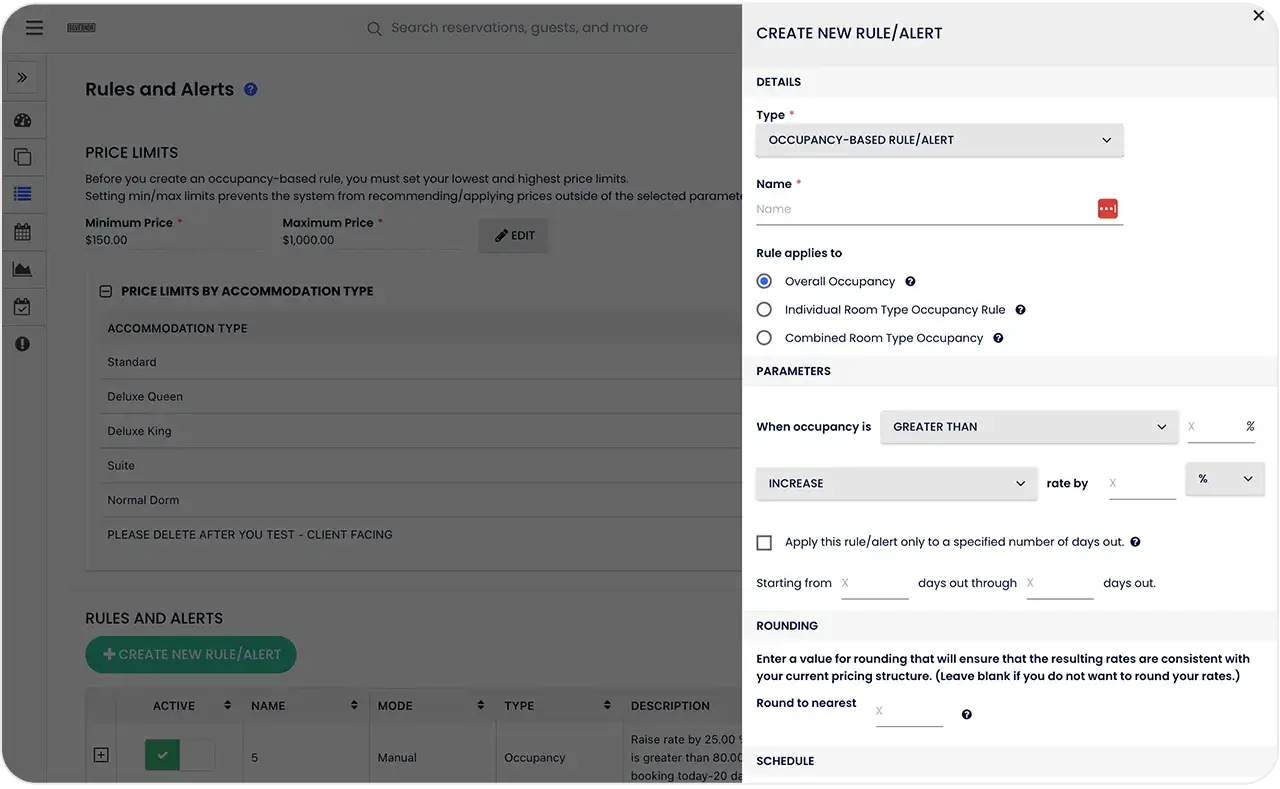
PIE provides the perfect mix of automation and hands-on control over your occupancy rules and room rates.
Rate shopping within the Cloudbeds Hospitality Platform
As part of the Cloudbeds Hospitality Platform, Cloudbeds’ Pricing Intelligence Engine (PIE) lets lodging businesses enjoy all the key features and benefits mentioned above and more. PIE monitors competitor rates on behalf of your property, displaying all pricing data on an easy-to-use, interactive dashboard. You can track market rates and availability as well as key performance metrics like ADR, occupancy, and RevPAR (revenue per available room) and compare performance year over year.
The features you need for effective rate shopping.
With PIE, lodging properties can track rates for up to 15 competitors. Hotels can be alerted of competitor rate changes, be notified of important changes in pricing and availability, and set parameters to adjust pricing in response to changes in market conditions.
PIE also features an interactive rate and availability calendar, showing whether competitor pricing has increased or decreased since the previous day and on what days competitors are sold out or have stay restrictions in place. Hotels can also sort rates by competitors’ lowest and highest prices and view competitors’ average rates. All these features help hotels ensure their rates are strategically positioned relative to competitors.
Built into the Cloudbeds platform.
PIE is fully integrated within the Cloudbeds Hospitality Platform, providing real-time occupancy data without the need to connect to multiple data sources. The intuitive platform also features a property management system (PMS), booking engine, channel manager, and payments gateway, as well as Cloudbeds Digital Marketing Suite and Whistle for Cloudbeds (guest experience software).
With all the tools you need to run your property within a single platform, lodging operators are better equipped to compete, backed by a unified customer support team.
More functionality? Integrate with leading RMS providers
For added depth of functionality, Cloudbeds has API integrations with a number of leading revenue management systems (RMS) in the hotel industry. Initial RMS launch partners include Atomize, BEONx, Beyond Pricing, Duetto, Pace Revenue, PriceLabs, and RoomPriceGenie, with more to come. For details, check out the Cloudbeds Marketplace, our interactive list of integration partners.
Triple C Hotels & Resorts increased ADR and direct bookings with the help of PIE
Located along a stretch of beach in southeast Phuket are two unique resort properties managed by Triple C Hotels & Resorts. For close to 10 years, both properties were running on separate PMS systems until Edward Kennedy, eCommerce and Revenue Manager, decided to switch both properties over to the Cloudbeds Hospitality Platform.
As part of the platform, Edward leveraged PIE to help gather market data in real-time, compare rates with competitors, and build rules to adjust rates based on a wide range of criteria – all to help yield more revenue. Edward said that “the pricing intelligence system is fantastic and has automated pretty much all of our sales and reservation functions at both properties.” With the help of PIE, both resorts saw an increase in ADR plus a 10-12% increase in direct bookings!

Cases like Triple C Hotels & Resorts show that with the right rate shopping tool, hoteliers will have the insights they need to price rooms more confidently and capture the optimal business mix to increase occupancy and drive more revenue.

